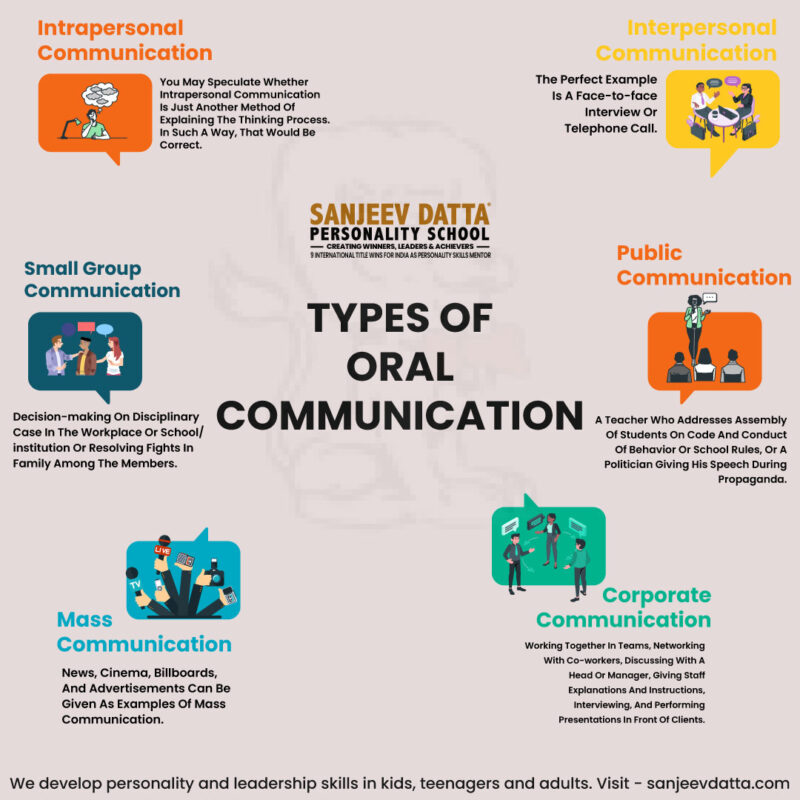Interpersonal communication skills refer to the talents and techniques utilized to engage and communicate successfully with others. They are essential to success in personal and professional relationships and play a significant part in developing trust, resolving disputes, and establishing a healthy working environment.
Interpersonal Communication Skills
1. Participatory Listening:

Active listening is the technique of completely focusing on what the other person is saying while attempting to comprehend the speaker’s viewpoint. This activity entails minimizing distractions, maintaining eye contact, and questioning the speaker to gain further understanding. During active listening, it is critical to demonstrate empathy and identify and react appropriately to people’s feelings. Individuals may acquire a better knowledge of another person’s thoughts and feelings and build trust when they listen attentively to what the other person has to say.
2. Verbal Communication

Expressing ideas, emotions, and thoughts through spoken words is what we mean when we talk about verbal communication. Effective verbal communication needs not just the capacity to convey ideas clearly and concisely but also the ability to adapt those ideas to various audiences. Because of the significant influence that nonverbal signals and adapting one’s communication style may have on the efficacy of verbal communication, it is essential to be aware of nonverbal cues and to modify one’s communication style accordingly. People who work on developing their verbal communication skills can improve their ability to articulate their thoughts and ideas and form stronger connections.
Visit: pageant body language tips

3. Nonverbal communication

Body language, tone of voice, and other nonverbal clues are all forms of nonverbal communication that may be used to transmit thoughts, ideas, and feelings. It is essential in developing a relationship, gaining trust, and communicating feelings and thoughts to the other person. Individuals need to be aware of their nonverbal indicators to be good at nonverbal communication. Additionally, they need to be able to understand the nonverbal cues of others and respond appropriately to them. Individuals may strengthen their connections and more effectively transmit their feelings and messages to others if they are skilled in nonverbal communication and work to improve such abilities. You can improve your nonverbal communication by getting personalized guidance from the best soft skills coach.
4. Empathy

It entails being aware of and reacting appropriately to one’s feelings and attempting to comprehend another individual’s viewpoint. Building lasting relationships, finding amicable solutions to disagreements, and cultivating a constructive atmosphere at work requires a healthy dose of empathy. Individuals can form greater relationships with other people and have a better understanding of the ideas and feelings of others if they enhance their empathy abilities.
5. The Resolution of Conflict

The successful management of disputes and settling differences in a fair, courteous, and productive manner for all parties concerned are necessary steps in resolving conflicts. Strong communication skills, empathy, and the capacity to identify common ground are necessary components of an effective conflict resolution strategy. Individuals can handle disagreements and differences in a manner that maintains positive relationships and productively resolves issues if they improve their skills in conflict resolution.
Visit: soft skills to practice
6. Questioning Methods

Asking questions in such a way as to elicit information, clarify comprehension, and stimulate conversation is what is meant by the term “questioning methods.” To develop effective skills for questioning, one must be conscious of the goal of the inquiry, avoid asking leading questions, and be respectful of the perspective held by the other person. Individuals can improve their ability to obtain information and establish deeper connections by better understanding and communicating with one another due to their improved asking methods.
7. Feedback

The process of delivering information to others regarding their performance, conduct, or attitude can be called “feedback.” To provide useful feedback, you need to be detailed, helpful, and focused on the recipient’s progress in areas of growth and development. It is essential to have a keen awareness of nonverbal signs and to deliver feedback courteously to the recipient and encourage their efforts. Individuals can be of more assistance to one another in terms of growth and development in a manner that is both helpful and constructive if they improve their abilities to provide feedback.
8. Adaptability

The capacity to modify one’s mode of communication to suit both the context in which it is used and the person with whom it is exchanged is an example of adaptability. To communicate effectively, one must be aware of the audience, adapt to how they communicate, use vocabulary and tone suitable for the circumstance, and use appropriate language and tone. This entails adjusting one’s behavior, demeanor, and communication preferences according to cultural background. Individuals who work on improving their adaptability can improve the quality of their relationships with others and their capacity to communicate effectively with a diverse group of people, increasing the likelihood that their efforts will result in favorable outcomes.
Developing excellent abilities in communicating with others on a personal level takes a lot of practice and conscious effort. Individuals may enhance their interpersonal communication skills and develop stronger connections in personal and professional situations by enhancing their personality through rigorous personality development training.
To sum everything up
Success in personal or professional interactions is impossible without good interpersonal communication skills. Individuals can improve their interpersonal communication skills and build stronger relationships with others if they cultivate active listening, verbal and nonverbal communication, empathy, conflict resolution skills, questioning techniques, effective feedback, and adaptability skills. These skills can be developed through personal development.
Why Sanjeev Datta Personality School?
- INTERVIEW TRAINING
- Leadership
- Presentation Training
- Social Boldness
- Dressing Etiquette
- Office Etiquette
- Communication Skills
- English Speaking
- Anger Management
- Time Management
- Team Building
- Performance Enhancer
- Soft Skills
- Goal Setting
- Career Counselling
- Student Subject Choice Counselling
- Listening Skills
- Video Presentation
- Meditation
For more details, contact us now!


